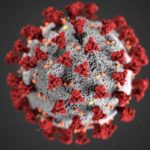The novel coronavirus which causes COVID-19 is so new–just discovered at the end of 2019–that there has been insufficient time to fully study how long antibodies in those who’ve had COVID-19 will last.
However, a study published in the journal Immunity on Oct. 13, 2020 found that people who recover from even mild cases of COVID-19 produce antibodies that are believed to protect against infection for at least 5 to 7 months, and could last longer. Those with severe symptoms had stronger immune response than those with milder symptoms.
Deepta Bhattacharya, an immunobiologist at the University of Arizona College of Medicine, was study team leader.
They received samples from 5,882 people–health care workers, first responders, university students, and members of the general public.
The study results show no difference between males and females, and no difference because of age.
The study notes that with more than 30 million cases worldwide at the time of the study (though as of today, more than 40 million), there have been only around 10 documented cases of somebody getting COVID-19 more than once. (The first such documented case in the United States is a Nevada man..click here for that story.)
The study’s findings are promising, but there will be more studies about antibody production and immunity. The study notes that a previous study had shown that antibodies against the SARS-CoV-2 virus lasted at least 3 months–even in those with mild symptoms.
Some diseases confer immunity that lasts for years to a lifetime, such as measles, but other diseases, such as the seasonal flu, need vaccines yearly to help protect against the disease or diminish symptoms.
In a different study published in The New England Journal of Medicine, on Sept. 1, 2020, researchers in Iceland took samples from over 30,000 people. Of the 1797 persons who had recovered from SARS-CoV-2 infection, 1107 of the 1215 who were tested (91.1%) and were determined to have antibodies.
Over a 4-month period of time, researchers found that those antiviral antibodies against COVID-19 had not declined.
Although these studies are promising, more studies are needed as time goes by to determine how and whether, and how long protection from reinfection lasts; whether age, gender, or ethnicity affect immunity; how best to measure antibodies and immunity; and ultimately, when there is a vaccine, how long protection from COVID-19 will last after one is vaccinated.
The unanswered questions mean even people who have had and recovered from COVID-19 still need to wear masks and practice distancing from others.
